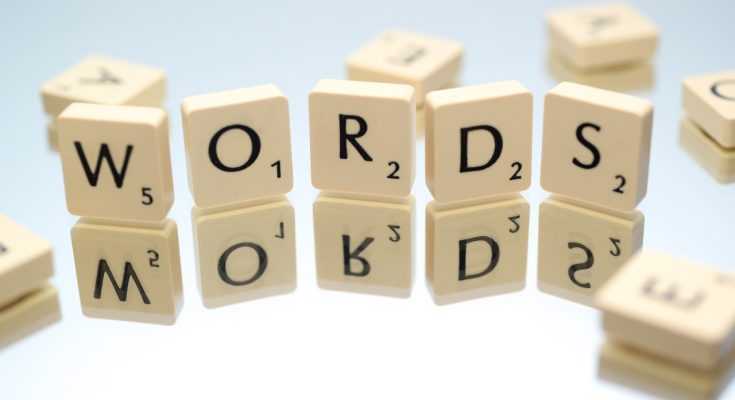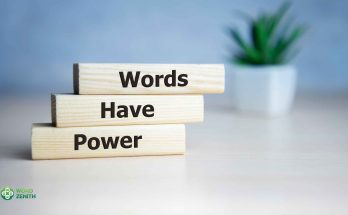Finding inner peace and tranquility in our bustling world full of distractions can be quite a task. This serenity may be sought via meditation, but its traditional forms are usually perceived as intimidating or difficult to persist with by many people. However, there is another way to relax your mind and spirit, it involves playing word games.
This article will explain how word games constitute forms of meditation thereby offering an unconventional means for discovering self peace with the aid of language. We shall look into some psychological and neurological benefits that come with word games, analyze various types of such games which best suit meditative practice, and provide useful advice on incorporating them into everyday life for mindfulness and tranquility buildup.
The Psychological Benefits of Word Games
Fostering Mindfulness
Word games demand focused attention and mental participation thereby bringing us to the present moment. These activities like solving crossword puzzles, unscrambling letters in word jumbles, and finding words in grids are ways to encourage mindfulness by redirecting attention from worries and disturbances. As we engage ourselves in these games’ struggles,we enter what is referred to as “flow”, a state where we concentrate only on the task at hand. Meditation at its core provides this same kind of feeling where one’s mind is totally absorbed within what is going on now without any tethering from former regrets or future anxieties.
Stimulating Creativity
Using language playfully and interactively can unleash creativity. Word games often entail connecting seemingly unrelated terms or rearranging letters to form new ones. This process encourages divergent thinking whereby we are able to explore different views and solutions. Through exercising our linguistic creativity abilities, not only do we enhance our problem-solving skills but also foster an open approach towards life problems.
Enhancing Cognitive Function
Cognitive functions such as memory, attention, language processing among others are stimulated when people engage in word games. Engaging in these exercises regularly has been shown to improve mental abilities while reducing the likelihood of cognitive decline among senior people. Like physical workouts, mental activities like those contained in word games help to keep the mind sharp and agile. Furthermore, cognitive benefits persist even after the game is over hence contributing to overall cognitive reserve and staving off age-related cognitive impairment.
The Neurological Basis of Word Games as Meditation
Activation of Reward Pathways
Activities that provide pleasure such as word games lead to release of brain chemicals known as neurotransmitters such as dopamine which stimulate feelings of reward and pleasure. This neurochemical reaction reinforces our incentive to do it again resulting in a positive feedback loop. In effect, solving a difficult word puzzle can be just as satisfying for the brain as reaching a milestone in meditation practice. Slowly, this link between pleasure and word games strengthens thus making them a predictable source of satisfaction or relaxation.
Neuroplasticity and Brain Health
The brain is highly flexible such that it can create new links and reorganize neuronal connections throughout life. This trait of the brain, also called neuroplasticity, is responsible for learning and adapting to new experiences. Word games like crosswords stimulate neuroplastic changes that enhance cognitive resilience and brain health when we engage in them. The regular mental stimulation through word games is associated with a lesser risk of cognitive decline, and could even help in delaying the onset of neurodegenerative conditions like Alzheimer’s.
Types Of Word Games For Meditation
Crossword Puzzles
They are the archetypal word games in a way – they need players to fill a grid of overlapping words by providing clues. The clues’ deciphering process along with fitting words into this grid necessitate talent in language use as well as deductive reasoning. As one immerses himself or herself in solving a puzzle, he or she enters into meditation-like focused concentration where he or she ignores all other external noise just to complete a particular task.
Anagrams And Word Jumbles
These include two types – anagrams and word jumbles, usually they give players a set of disordered letters which they have to arrange so as to make sense. These games test not only vocabulary knowledge but also cognitive flexibility and problem-solving skills. They represent mental gymnastics that exercise the mind helping it engage in mindfulness while searching patterns between manipulated letters.
Word Search
Word search puzzles consist of a grid of letters containing hidden words that players must find and circle. While seemingly simple, these puzzles demand sharp visual perception coupled with attention to detail at all times. When scanning through for words within the grid, people end up concentrating hence achieving an increased state of awareness thus silencing their minds.
Practical Tips For Word Game Meditation
Set Aside Dedicated Time
Fix a specific period each day for your daily meditation using word games. Whether you do it during your morning rituals, during lunch break or at night before sleep, having a specific time of the day for play with words will help incorporate it into your routine.
Choose Games That Speak to You
Try different types of word games to see which ones resonate with you. It could be crosswords where there is order in answering out words, or rather anagrams where creativity without order rules. Find games that are interesting and enjoyable to make sure you make the most of the meditation aspect of it.
Practice Non-Judgmental Awareness
Use curiosity and open-mindedness as you approach these word games. If you end up in a struggle while solving a puzzle or fail to get a clue, don’t go hard on yourself, don’t become frustrated. Instead, watch your thoughts and responses with kindness and love knowing that even the process of getting there matters more than reaching the answer.
Reflect on Your Experience
Once you have finished playing a word game, take a few seconds to think about what has happened? Observe any changes in emotional states or mental well-being? Did taking part in this game make you feel more relaxed and focused? How does this compare to other forms of meditations? By giving thought to how one practices, he/she is able to understand how much he can get from meditation through word plays.
Read More: The Role of Word Games in Improving Reading Comprehension
Conclusion
In an environment full of noise and disturbances, puzzles give tranquility. They help people to access inner peace and mindful living through using language. That could be a crossword puzzle, anagrams or word search in which every game creates its own opportunity for stillness and solace in the cadence of words. Therefore, when you are yearning for calmness remember that it could be as easy as one word by simply picking up a pen and paper.




